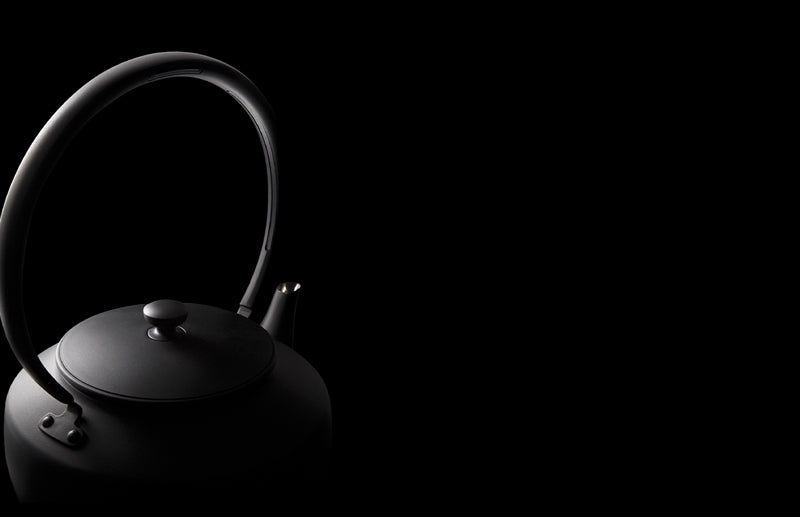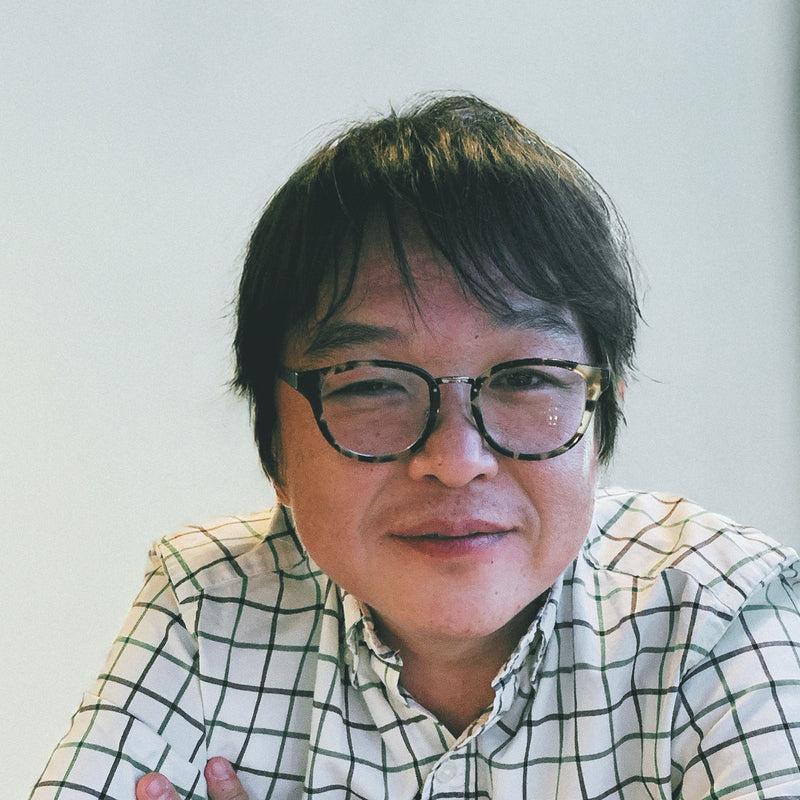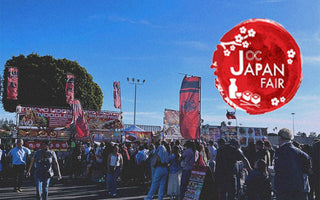Discovering a Little Tokyo in the Heart of Brooklyn
I still remember the summer heat on July 3, 2025 as I pushed open the door to 50 Norman Avenue.

Stepping into Cibone O’te at 50 Norman Avenue in Brooklyn’s Greenpoint – a space often dubbed “Little Tokyo” – feels like crossing the Pacific. The modest facade opens into a world where contemporary Japanese design, craft, and cuisine harmoniously collide.

A Japanese Concept Reimagined in Greenpoint
The original Cibone store in Tokyo has long been a trendsetter in “life editorial” – curating art, design, and everyday objects into a story of living well.Blending Design, Craft, and Cuisine Under One Roof
Inside, Cibone O’te unfolds as an open-plan marketplace of Japanese delights. Immediately, the scent of simmering dashi (出汁, soup stock) wafts over from Dashi Okume’s corner.
Dashi Okume, as I soon learned, is a Tokyo-based dried fish and soup stock shop operating since 1871 in Tsukiji Market – and here it was in New York, its first overseas outpost!
At their station, a friendly staff member was demonstrating how customers can blend their own custom dashi packs from a choice of 30 ingredients, grinding the mix fresh with a special machine.
I watched a Brooklyn local enthusiastically mix kombu kelp with smoky bonito flakes, an East-meets-West foodie moment. Nearby, a small seating area offered simple Japanese comfort foods – miso soup, onigiri rice balls – so visitors could taste the broth in action.




Cibone O’te's New Expansion
The Balmuda

Meeting Mr. Kan Terao and Ms. Yuriko Kawazu
The highlight of our visit was a first met with Mr. Kan Terao (寺尾 観) and Ms. Yuriko Kawazu(河津ゆり子).

“I learned to pay attention to how people feel in a space – is it comfortable, is it inspiring? I bring the same perspective to Balmuda’s presence here. We want Americans walking into this store to feel something special, not just see new gadgets.”



Balmuda’s Expansion Strategy: More Than Just Selling Toasters
Once we dove into Balmuda’s U.S. game plan, I realized this expansion is carefully thought out, step by step. Mr. Kan explained that Balmuda didn’t rush in with a standalone flagship store right away. Instead, they chose to embed within Cibone O’te’s ecosystem, which already attracts a community passionate about Japanese design and food.
“We didn’t want to just drop a Japanese brand on American soil without context,” he said. “It mattered to be in a place where our story makes sense.”
By positioning Balmuda alongside craft and food brands, they create context: a shopper might come for artisanal ceramics or a bowl of miso soup, and organically discover a Balmuda Lantern casting a cozy glow in the corner. It’s a softer introduction than a typical electronics aisle.
Mr. Kan’s role – part brand ambassador, part educator – is pivotal here.
He recalled how earlier this year, he participated in ICFF 2025 (International Contemporary Furniture Fair) in NYC, where Balmuda exhibited to the design community. It was a hit, partly because Balmuda’s approach resonated with design enthusiasts.
“People weren’t expecting a toaster to wow them at a furniture fair,” Mr. Kan chuckled, “but when we showed how it uses steam to make the perfect toast, eyes lit up.” At that show, he was basically the storyteller for the brand, sharing Balmuda’s journey from Tokyo and its philosophy of blending technology with heart.
Balmuda was founded in 2003 by his brother Gen Terao (寺尾 玄), who had an unconventional start as a rock musician and then a self-taught product designer. The brand’s cult-favorite toaster didn’t arrive until 2015, but it became an instant icon in Japan for one reason: it delivered an experience. Instead of just heating bread, it used steam to revive yesterday’s croissant to bakery-fresh perfection. That notion – an appliance that elevates a simple daily moment – struck a chord.
“Our mission is to create ‘wow’ moments in everyday life,” Mr. Kan said, echoing the company’s mantra of bringing wonder into the ordinary.
So how do you bring that mission stateside? Mr. Kan described a multi-pronged strategy: build brand recognition through placements in high-end retailers, engage the design community, and gather feedback to learn American preferences. In fact, Balmuda has already partnered with some upscale U.S. stores –Williams Sonoma and Crate & Barrel now carry Balmuda products, treating them like the “Hermès of home appliances,” a nickname the brand earned in Asia. They’re also leveraging e-commerce (Amazon included) but carefully, ensuring that the brand’s premium positioning isn’t diluted. It’s clear Balmuda isn’t after quick volume; they’re playing the long game to build a loyal following.
Challenges of Localizing Japanese Products for the U.S. Market
Of course, not everything about expanding to the U.S. is poetic and fun – there are nuts-and-bolts challenges too. When I asked Mr. Kan about the hurdles, he leaned forward, hands clasped, as if ready to tackle a problem. “Oh, we’ve had plenty of lessons,” he admitted with a grin.
Regulations and certifications were among the first. Japan and the U.S. have different electrical standards – Japan uses 100V and different safety norms. Bringing something like the Balmuda Toaster to the U.S. meant re-engineering them for 120V and UL certification (the strict safety standard here).
“People think we just brought the products here, no, no, no... There are months of hard efforts to make that happen.” Mr. Kan explained.




Quality-of-Life Design – Merging Artistry and Utility
One theme kept surfacing in our conversation: quality of life. Mr. Kan used that phrase often, describing Balmuda’s design ethos as “quality-of-life design.” I asked him what he meant by that, and his eyes lit up.“If you think about it, life is made of many small moments, right? Brewing your morning coffee, making toast, lighting a lamp in the evening... If we can make those little moments more delightful, the overall quality of life improves.”
I couldn’t help but nod – it’s such a simple yet powerful idea (and it’s exactly the kind of thinking that gets millennials like me excited about home appliances). Mr. Kan went on to explain that Balmuda’s team approaches product design almost like art creation. They chase a feeling or an experience, then engineer the product around that. The Balmuda Lantern, for example, wasn’t created to be the brightest lamp or the longest-lasting battery. It was created to mimic the warm glow of a candle or an old oil lantern, to give you a sense of comfort and nostalgia whether you’re dining on your balcony or camping under the stars. That’s why its LED light gently flickers and the color temperature shifts to a golden hue – it’s about atmosphere. Similarly, the toaster is about the joy of eating, the fan about the sensation of a natural breeze.
Mr. Kan proudly shared that Balmuda’s design philosophy is deeply rooted in Japanese aesthetics. He used two Japanese terms: teinei-sa (丁寧さ, meaning attentiveness or thoughtfulness) and kodawari (こだわり, the pursuit of perfection). “We try to infuse teinei in every detail – from the click of a dial to the curve of a handle – so that using the product feels mindful and satisfying,” he said. And kodawari drives them to iterate relentlessly.
He also noted that Balmuda as a company encourages a creative mindset. The founder Gen Terao’s background as a musician plays a part – their wireless speaker, for instance, lights up with the beat of the music, a playful nod to his rock ’n’ roll days. “We want our products to have soul,” Mr. Kan said. It’s no wonder Balmuda’s flagship store in Tokyo was designed like a cross between a museum and a living room – they see their appliances as functional art pieces that tell stories and connect with people’s emotions.
A Morning in Brooklyn, A Touch of Tokyo at Home
You might go in for the matcha lattes or the art exhibitions, but you’ll likely come out with something much more meaningful – perhaps a new appreciation for teinei in how you set your table, or a kodawari resolve to choose quality over quantity. And if you’re like me, possibly a sleek new appliance or two to elevate your home routine.
Balmuda’s expansion into the U.S. through this Brooklyn haven shows that globalization can be done thoughtfully – not by pushing products, but by sharing culture and improving everyday moments. I left that day feeling inspired and connected, as if Tokyo had come to meet me halfway. The next morning, when I used my Balmuda Lantern during an early meditation, I smiled thinking: this is exactly what Mr. Kan meant by exporting Japanese thinking. It had seamlessly become a little part of my life, thousands of miles from Japan.
And in the end, isn’t that what good design is all about?



Visit CIBONE O’TE
https://cibone-us.com/
@cibone.ote
50 Norman Ave
Brooklyn, NY 11222, USA.
P.S. Event Recap with Balmuda on 11/22/2025
We were so honored to be invited to be part of the event by Balmuda and Albion Garden Cafe at 1043 Abbot Kinney Blvd, Venice, CA 90291.
The event was quite fun and tasty that we were able to taste all the food that were prepared by the Balmuda appliances.
Here is a flyer that went out for this event FYI, for the future event, sign up to our newsletter or follow us on Instagram to get first-hand information bout events like this.
Make sure to scroll down to the bottom to see the video recap of this event!
P.S. Event Recap Video with Balmuda on 11/22/2025
Get Free Bonus Books

Sign up for free to the Coffee Club to get advice and exclusive articles about how to choose Japanese Coffee, and tips, tricks, and recipes for enjoying Japanese coffee.
About the author
Kei Nishida
Author, CEO Dream of Japan
Certification: PMP, BS in Computer Science
Education: Western Washington University
Kei Nishida is a passionate Japanese tea and coffee connoisseur, writer, and the founder and CEO of Japanese Coffee Co. and Japanese Green Tea Co., both part of Dream of Japan.
His journey began with a mission to introduce the world to the unparalleled quality of Japanese green tea. Through Japanese Green Tea Co., he established the only company that sources premium tea grown in nutrient-rich sugarcane soil—an innovation that led to multiple Global Tea Champion awards.
Building on this success and his passion for Japanese craftsmanship, Kei expanded into the world of coffee, pioneering the launch of Japanese Coffee Co., the first company to bring Sumiyaki charcoal-roasted coffee to a global audience. His dedication to authenticity and quality ensures that this traditional Japanese roasting method, once a well-kept secret, is now enjoyed worldwide.
Beyond tea and coffee, Kei has also introduced Japan’s legendary craftsmanship to the world through Japanese Knife Co., making handmade katana-style knives—crafted by a renowned katana maker—available outside Japan for the first time.
Kei’s journey continues as he seeks out and shares the hidden treasures of Japan, one cup and one blade at a time.
Learn more about Kei










